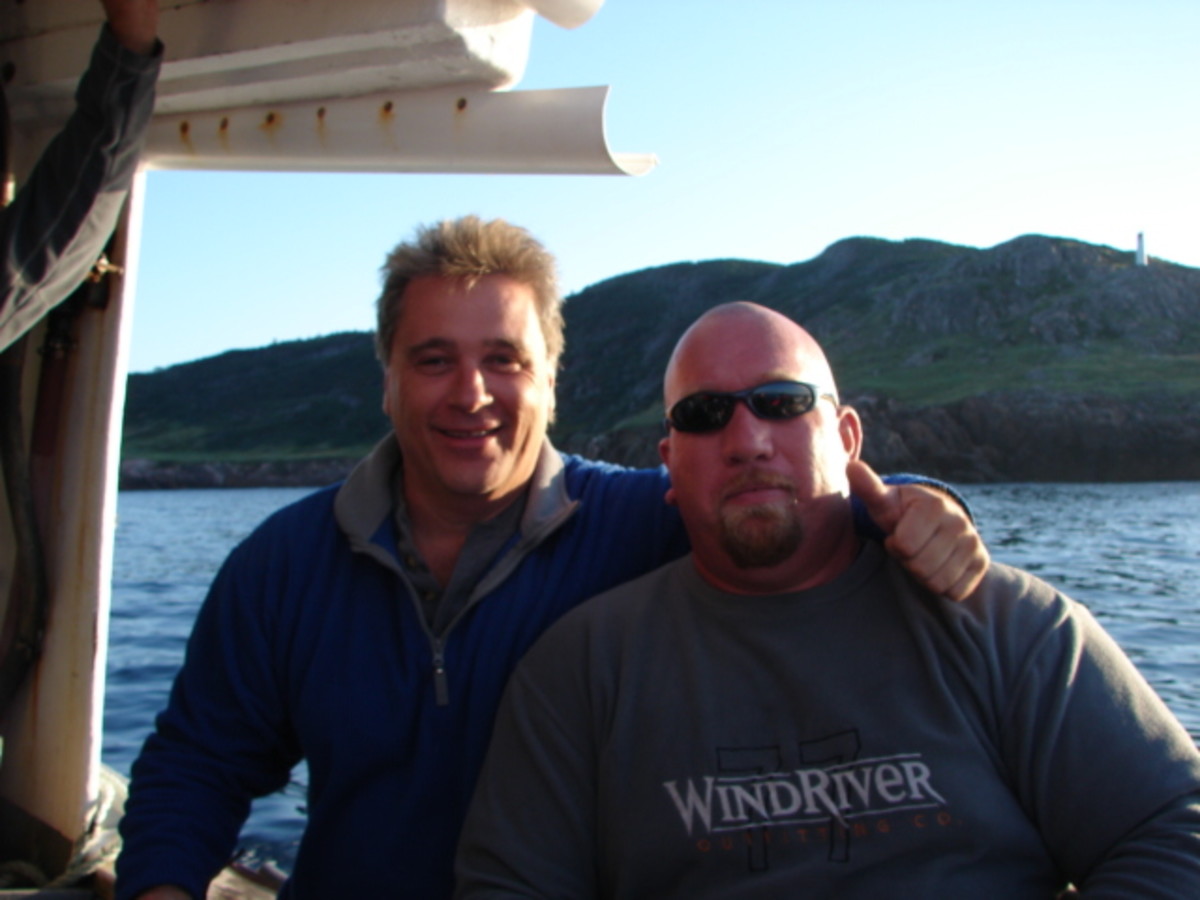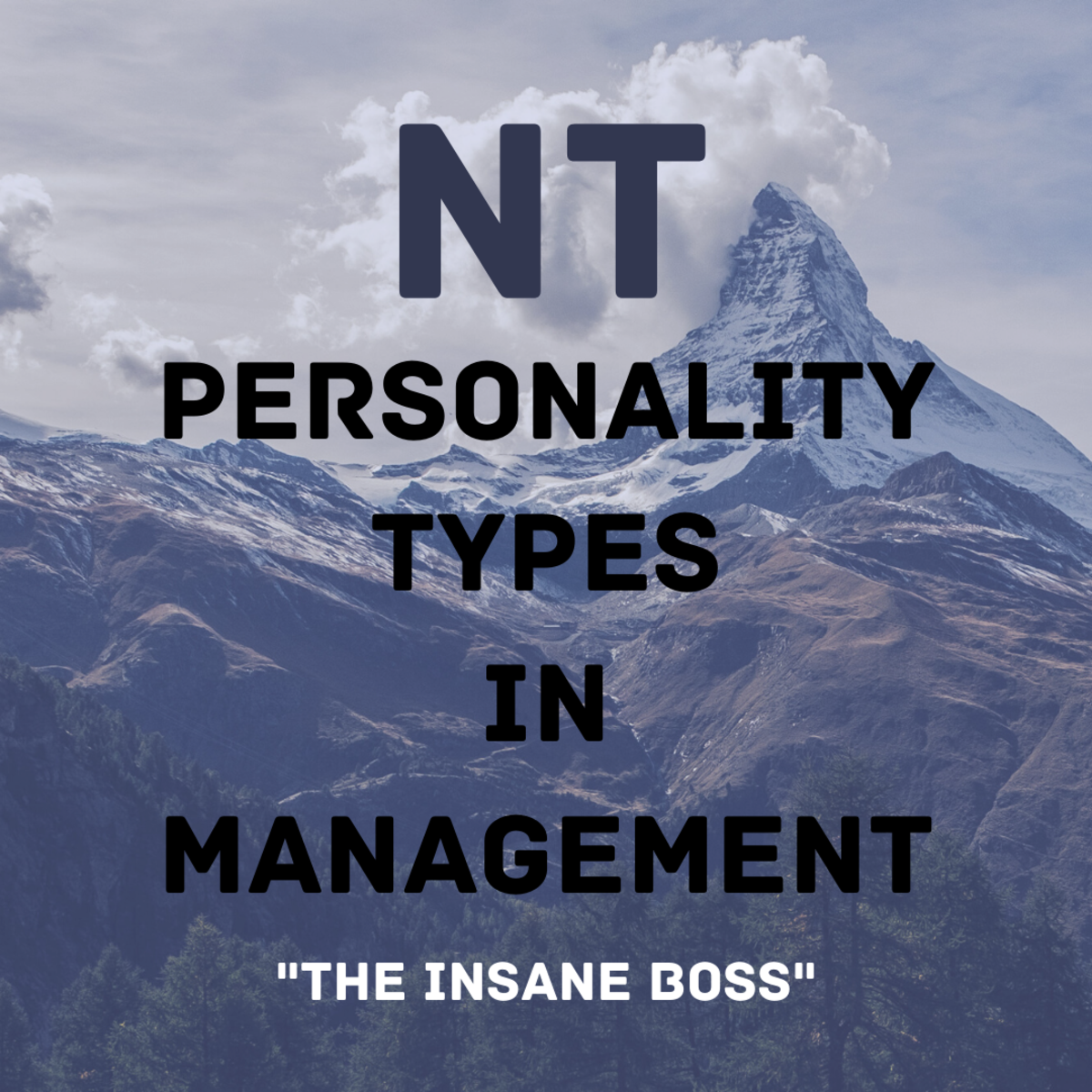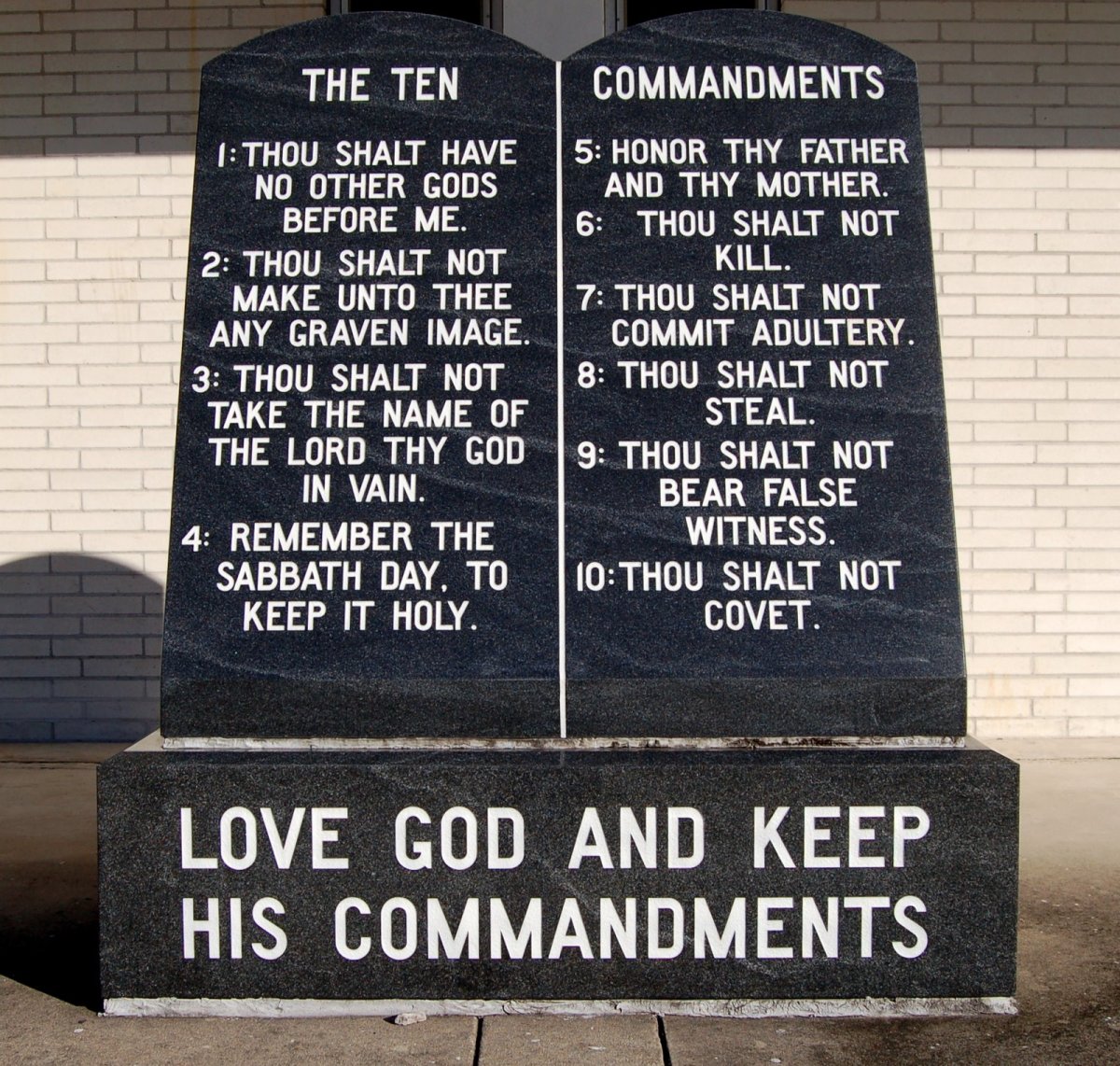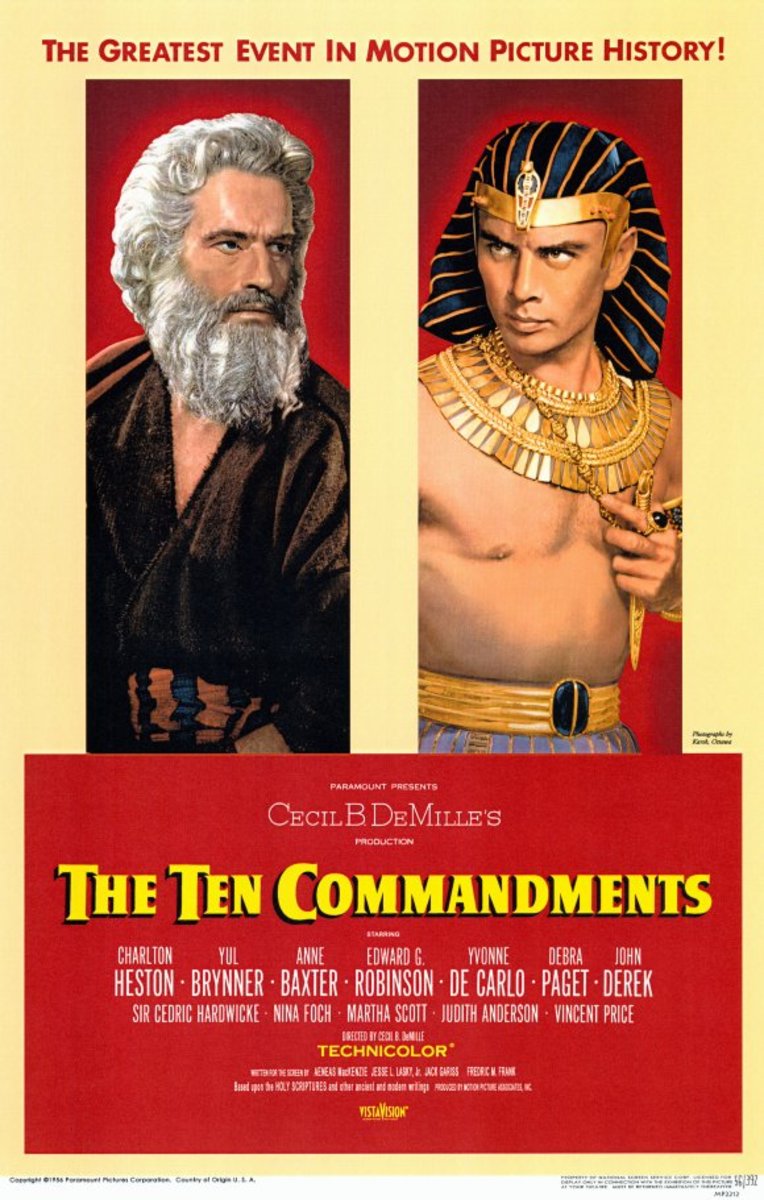~What do "The Ten Commandments," "Hellboy," and "Treasure Island" have in Common?~
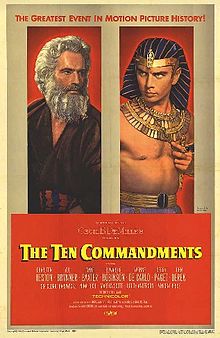
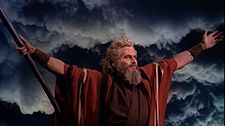
What does “The Ten Commandments,” "Hellboy," “Treasure Island,” “The Egyptian”, "King Soloman's Mines," and “The Gold of Mansa Musa,” have in common?
Answer: They are all based upon historical events.
And all but "Treasure Island" have somethingt to do with Egypt, but we will get to that one in a moment.
I’ve always been fascinated by Egypt.
I didn’t know that much about it when I decided to write a romantic novel in an Egyptian setting. I imagine that most of us know that the land of Egypt has the Great Pyramids, the Sphinx, and the Valley of Kings. Most everyone has seen the Ten Commandments movie with Charlton Heston and the scene with the slaves dragging the huge stone to the construction site (although it is not historically accurate). Most of us have knowledge of King Tut’s Tomb and that may very well wrap up the highlights for us.
I wanted to take my reader to the big attractions and then on to many of the out of the way nooks and crannies. What would it be like to be lost in a desert storm, locked in a forgotten pyramid, or to participate in an archeological dig? After reading a few novels along this line, I was ready to write the novel that I would want to read. Yes, it would be the novel that had not been written and I would absolutely love! Well, OK then, I was writing a novel for me—something I would be proud of and, with any luck, others might enjoy it too.
More than that, it would be the novel in which I buckled down and taught myself the craft of writing. I had completed the first draft of “Seeds from Heaven” and realized that I was a long way from being much of a writer. I could come back and rewrite “Seeds from Heaven” later. I spent a long time studying a shelf of books on, how to write professionally. I found a few popular novels to read with Egyptian themes. I could utilize the characters from “Seeds from Heaven” in my novel and perhaps create a series.
I needed a hook, something big. Eventually I ran across the story of Mansa Musa. For anyone studying North African history, this was the equivalent of George Washington fighting in the American Revolution—first grade stuff. When I came across this piece of history, I was hooked. Important as this was to North African history, there was never more than a paragraph or two that mentioned his hajj to Mekka.
I knew how Robert Louis Stevenson must have felt when he did the research that led to the writing of “Treasure Island.” In fact, I ended up doing exactly the same research as RLS and will eventually write a novel about the Spanish and the Peruvian conquests that will lead to a modern day romantic adventure.
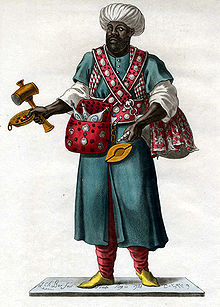
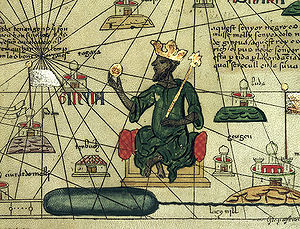
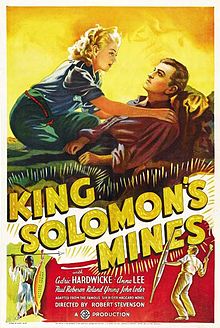

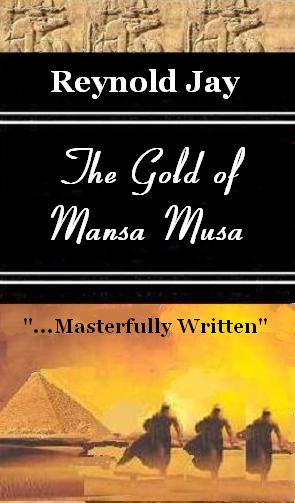
Mansa can be translated to mean “king” and that would make “Mansa Musa” to mean “King Musa.” He was one of the most loved kings of all time. His North African Empire was funded with gold from the largest gold mines of Africa.
In 1324, he decided to make a hajj to the Mekka and formed one of the largest caravans in history. Sixty thousand citizens made the trip from Timbuktu, along with one hundred camels laden with gold. It must have been spectacular in every way. The Persians were astounded when he rode through Cairo and eventually on to Mekka. He was popular, by all accounts, as he gave away much of the gold as he passed from village to village!
King Solomon’s Mines, a popular novel written by H. Rider Haggard in 1885, also comes to mind here. In his colorful story, a group of adventurers is led by Allan Quatermain into the wilds of Africa in search of the legendary mines mentioned to exist during biblical times. This was the first adventure novel with a Lost World literary genre.
More recently, a novel by Paul Sussman, “The Lost army of Cambyses” is based upon the loss of an entire army around 522 BC in a blinding sandstorm. Although many Egyptologists regard this as a myth, there have been excavations in which it is thought the remains may have been unearthed. The Lost Army also pops up in a popular 2003 Hellboy novel by Christopher Golden.
The lost army is thought to be somewhere near Siwa, an oasis that houses the Siwa Oracle. The Templeof the Oracle became one of the sites in “The Gold of Mansa Musa.”
Here is an excerpt:
Minutes later the Trailblazer found its way through a dense palm forest that led to the massiveTemple of the Oracle. Ci said, “Did you know that this is the original Oracle, not that stuffy Oracle used by the Greeks?”
“I did not know that,” said Quentin as he looked suspiciously at Ci. “You are a fountain of information today.”
Ramazani added, “And Alexander the Great did a consultation here around 322 B.C.”
“I am amazed at both of you. How in the world do you—”
Ramazani stepped to the side, revealing a sign. “It says so right here!
Suma Rungu has always said, ‘Open your eyes and you will see’.”
"Et tu Ramazani, the two of you are shameful.” Quentin shook his head in apparent disbelief while he rummaged through a box in the back of the four-wheeler. “Ah, here it is.” He pulled out a pair of binoculars and strung it around his neck. “Let’s see where two Mandingos and a camel became lost eight hundred years ago.”
They strode through the temple and out the back they could see the Sahara stretching far off into the horizon. Quentin scanned the landscape with the binoculars.
Ci sat on the ledge of a deteriorated wall with Ramazani. “This is another place that could use a makeover.”
“Business must have dropped off,” commented Ramazani languidly.
“Hey Quentin, see anything out there?” wondered Ci.
“No, wait a minute I do see something way out there. It is either a camel with two humps or, oh my—two camels that are—”
“Forget the two camels. See anything else—like maybe a sign poking out of the sand saying ‘come and get the lost treasure of Mansa Musa.’ That would save us a lot of exertion.”
An old woman dressed in black rags and a hooked nose hobbled into view and settled on the opposite wall. “Psst, Quentin—I think this is fate. Maybe she is the Oracle and can help us.”
Ramazani said, “What do you think, Quentin—is she a tourist?”
Quentin gave the old hag a brief glance and continued studying the landscape. “Well, she doesn’t look like the typical tourist.”
“Psst, Quentin,” whispered Ci, “I am going to talk to her. Let’s all go to her—she looks so lonely all by herself.”
The old hag made a gesture that indicated Ci should sit with her and said with a shrill whispered cackle, “Come my sweet, you have nothing to fear.”
“Come on Quentin, she wants to talk to me—maybe not you, but that is OK.”
When the trio had settled on the opposite wall the hag said, “I am the Sassouma, Keeper of the Oracle. You have come to have your fortune told.”
“Yes,” said Ci, now quite excited, “we have come to discover our future….”
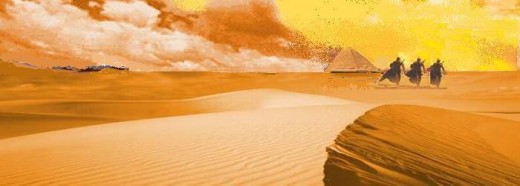
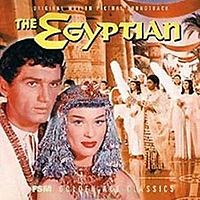
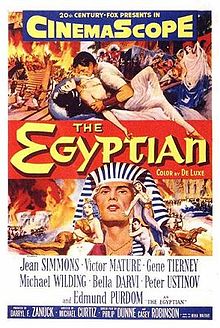
I remember reading “The Egyptian” by Mica Waltari at least two times in high school and then I’ve seen the movie starring Jean Simmons and Victor Mature. Horemeb, played by Victor Mature, is a physician to the pharaohs and falls hopelessly in love with a gal who cares little for him and he ends up penniless writing his memoirs in a foreign land. The novel has quite a bit of detail in the mummification process and it is with this experience that he learns human anatomy like no other.
Yep—using Egypt for a setting offers lots of excitement for a reader. I will admit I have never visited this romantic land. Maybe one day—and then maybe not—I love the romance and I would never want to lose that. I can dream and write of faraway places and take my readers with me—
That’s all for now.
RJ
********
Be among the first to review the eBook, "The Gold of Mansa Musa." Available worldwide.
Book 2 of the "Seeds from Heaven" series.


